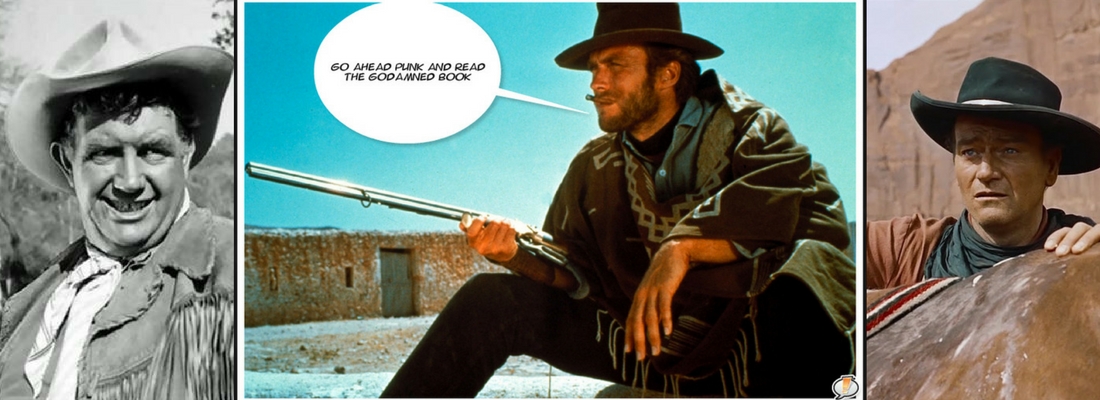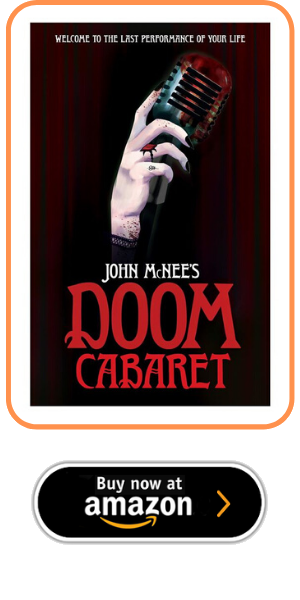|
In response to Matt Shaw's post yesterday about crowd funding, I have decided to talk about something that has been bugging me for a long time. Now I don't have a problem as such with crowd funding, hell, I have even thought about setting one up for the site, but I have always resisted the urge due to the inability to come up with a decent reason or set of perks that you the readers would be interested in. And there in lies one of the problems at the heart of crowdfunding. If you are an author or a publisher looking to set up a crowd funding campaign read on for some of my pointers on where so many go wrong. 1. You NEED TO HAVE A BRAND.Every author needs a brand, you can't expect to start a crowd funding campaign without already having a brand. By brand I mean having a loyal customer base. If you can't make it is a writer by just going the self publishing route via places like Amazon or Smashwords, then you aren'y going to make it in the world of crowd funding. You need a loyal base of readers who are willing to take a punt on your book, not just sovthey did their hands in their pockets, you also need them to spread the word. Matt Shaw is perfect example of this, he has his own brand, with a large and loyal following, a following who like to spread the word, and talk about his books. Matt has spent years cultivating his brand, with a powerful social media presence, from carefully thought out posts designed to get folk talking, to bat arse crazy author lip-sync videos, Matt is a force to be reckoned with. Be like Matt, don't just rush into this without first developing your own social media brand. 2. You need to engage media outletsI have seen a number of failed crowdfunded projects where the owner has complained about the lack of shares on social media etc, and yet I saw no mention of the project on any relevant website. Having friends and fans on social media is one thing, but there is an inherent problem with only relying on this. The chances are that 80% or above of the people who see it have already seen it. Look at the top 100 friends in your facebook feed, look at the number of mutual friends, it's a big number isn't it? That means that your social media reach is going to be extremely limited. If you want a wider reach you need to reach out to websites. Most have news features or round ups of the week, find out who the big hitters are in your genre then contact them, but be nice. Explain why you need our help. Most of us are willing to help. A recent Kickstarter I helped to promote was a good £5000 away from their total with a week to go, but thanks to my help and the help of a number of other websites they blasted past that figure in a matter of days. Now this won't always work, you need to have a good product, but more importantly a good set of perks / rewards. 3. DON'T SHORT CHANGE YOUR BACKERSIf you are going to ask a reader to dip their hands in their pockets and part with their cold hard earned cash, you better have a decent set of perks. Trust me if you really think that £20 for a copy of an ebook is a good reward then your project deserves to fail. Why the do you think that anyone would spend £20 on an item that has relatively no cost in production, it's not ass though you are getting a physical copy with the costs of printing and shipping built into it. But then you offer a physical copy of the book for £25!!! You do realize that just makes you sound as though you have no idea in what you are doing? As soon as you appear to be anything other than great value for money people are just going to back away. Or having a pledge that gets you a cover design from the designer who did your cover, but the cover of your book is so bad it hurts my eyes. You need to see the project with an unbiased set of eyes. You an't just pass off any old crap as a perk. You need to get a decent set of perks, T-shirts, a character in the book, badges, an copy of the book with added content only found in the copies sold to the backers, be creative, and fair, don't abuse the goodwill of those who want to support you. 4. LET THE PENNIES LOOK AFTER THEMSELVESI the last few months I have seen at least ten Kickstarters for books where the minimum pledge is £15, that's stupid enough as it is, but when you throw in a thank you in the book or a shout out on your Faceboook page, (which no one is following as you forgot about the first two points ion the list) as the only perk then you are just insulting anyone who even considers donating to your project. You need to have like 99% of all other Kickstarters a £1.00 minimum donation, a lot of people may not really want a copy of your book, but like the idea of helping out an author, and to most folk £1.00 is nothing. Let them help you will be surprised at just how much money you raise from this. It costs you nothing but your time to say thanks on social media, so don't be a money grabbing git, keep the initial pledge level low. 5. SET REALISTIC GOALSWe all love money, I always want more, but I don't expect folk to overpay me for something. I'm sorry but asking for over £10000 in initial funding is way over the top. Especially if the finished book will then go into mass circulation. Even at pro rates for an 80k novel if you paid the author short story pro rate for the book of 0.05c per word that is $4000, and even if you pay for a genre leading editor your are looking at around $5000 through in a top class cover artist you are probably looking at another $1000, and unless you are printing an all singing all dancing leather bound limited edition copy, your printing costs from places like Lightening Source are pretty minimal. But the chances are, you're not doing this, crowdfunding isn't a means for you to live without working for six months, don't abuse those who want to invest by taking the piss. This should be about the product and not you. If you really believe in your book fund it yourself, loads of writers and small publishers already do it and do it well. 6. Don't be a whingerSo your project has failed, these things happen, don't then go on social media and start complaining about the lack of support. These things happen, if every crowdfunder worked we would all be doing it. People don't like it when you blame everyone else bar yourself.
Joe Strummer said it perfectly "When you blame yourself, you learn from it. If you blame someone else, you don't learn nothing, cause hey, it's not your fault, it's his fault, over there." I have seen a few people behind failed projects blaming people like myself for not getting behind their project, just stop, stop. Maybe we didn't cover it because you never asked. Are fan-clubs about to come to the community? We talk to Matt Shaw about his own successful club!
23/8/2016
The past five years or so has seen the horror genre turned on its head, the rise of self-publishing and the subsequent rise of writers who shouldn't be published has left those writers who can actually, you know, write a decent book struggle to find ways to support themselves. From Kickstarter, to Go Fund Me, from the ways in which an author can look for means to live the dream is richer than ever. However in the majority of cases a lot of the "crowd funding" methods are as hackneyed as the writer offering it, I mean £20 for a thank you in an ebook? That's going to get a lot of funding. So as with most things we have leave it to THE MATT SHAW to show us how it should be done. Read on to find out how Britain's most loved extreme horror writer and lip-sync champion shows us how to set up a successful Patreon account.
Strange Playgrounds
In part one of my Blog tour of Gingernuts of Horror, I will be taking over George Daniel Lea’s excellent video game series to talk about a recent experience that messed me up. Enjoy.
The Blair Witch Project...a “love or hate” experiment, to be sure; for some (myself included), it stands as an icon of horror at its most pure; mystery, tension, escalating dread, subtly conveyed back-mythology; a wonderful uncertainty engendered in the audience's mind as to what is “real” and what is not. That's the genius of successful documentary or “found footage” horror; even when the audience knows it to be confection; a work of total fantasy, it somehow still manages to undermine that certainty, creating a sense of paranoia that sustains beyond the fiction itself. For others, the film is a vague and empty experience, lacking in the necessary elements to evoke more than a fleeting moment of interest, let alone emotions such as dread or fear.
In true spirit to Johnny Clegg’s song: Cruel, Crazy, Beautiful World, I opened my eyes to my surroundings and decided to convey what I saw and experienced to the world. It wasn’t an easy feat, especially seeing as mainstream publishers in South Africa are still preoccupied with publishing post-Apartheid literature, instead of realising the country’s already moved into its Pseudo-Modern Age. Or maybe they have realised and the government is simply slut-shaming them into publishing the things they want published? Who knows? It’s plausible, considering the SABC is already under pressure to report only what the government wants reported, so why not the publishers, too? Nevertheless, I didn’t want to write a post-Apartheid book—I never did—because regardless of what publishers think, South Africans are tired of living in the past. Or at least, they’re tired of living in South Africa’s past. The collective us want to move on; not to forget our history--never to forget—but to look toward a better future. And so, Muti Nation was born. |
Archives
April 2023
|













 RSS Feed
RSS Feed

